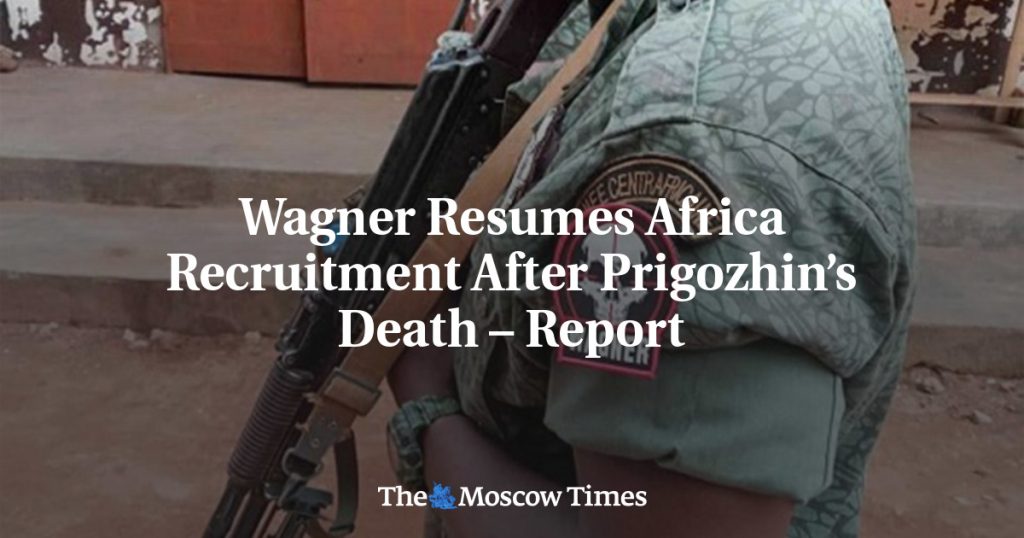Russia’s Wagner mercenary group is once again actively recruiting fighters for deployment in Africa after the death of its leader, Yevgeny Prigozhin, and his associates in a plane crash believed to be an assassination plot orchestrated by the Kremlin. The group disbanded late last year following a failed mutiny against Russia’s military leadership, with fighters transferred to units under the control of the Russian armed forces. However, recent reports indicate that several thousand Russian soldiers have been redeployed to Africa since mid-February, as mercenaries and regular soldiers, to train local military personnel and other mercenaries.
Wagner has posted recruitment ads on its Telegram channel, with Mali identified as a key destination for new recruits. Russian President Vladimir Putin recently spoke with the head of the Malian junta regarding cooperation in various projects, including counterterrorism. The future of Wagner’s overseas operations had been uncertain after Prigozhin’s death, but the group is now offering six-month contracts with competitive salaries and life insurance to potential recruits. Prior to his death, Prigozhin expressed that Wagner was continuing its activities in Africa and Belarus, highlighting the group’s role in expanding Russia’s influence globally.
The joint investigation by Vyorstka and Nordsint revealed Wagner’s plans to send the next group of recruits to Africa in mid-April, with a focus on carrying out tasks in the region. The group’s mission is framed as a way to make Russia a stronger presence on all continents, with a promise to recruit real heroes for the job. Despite the upheaval following Prigozhin’s death and the failed rebellion, Wagner remains committed to its operations in Africa and continues to pursue its objectives in the region. The group’s recruitment efforts suggest a proactive approach to maintaining its activities and expanding its influence in Africa.
The use of mercenaries like Wagner in Africa has long been seen as an extension of Russian influence in the region, with the group involved in various conflicts and security operations. The recent redeployment of Russian soldiers to Africa, both as mercenaries and regular soldiers, indicates continued interest in the region and the pursuit of Russia’s strategic objectives. The cooperation between Russian leadership and Malian authorities further solidifies this commitment, with a focus on energy, agriculture, mining projects, and counterterrorism efforts. Wagner’s presence in Africa is expected to play a significant role in advancing Russia’s interests in the region.
The recruitment ads posted on Wagner’s Telegram channel suggest a renewed focus on operations in Africa, with Mali as a key destination for new recruits. The competitive salaries and benefits offered to potential fighters reflect Wagner’s determination to attract skilled individuals to join its ranks. The joint investigation by Vyorstka and Nordsint sheds light on the group’s recruitment efforts and the continuation of its activities in spite of recent challenges. Wagner’s presence in Africa is likely to have far-reaching implications for regional security dynamics and Russia’s influence in the continent as a whole.
In conclusion, the resurgence of Wagner’s recruitment activities in Africa following the death of its leader, Yevgeny Prigozhin, underscores the group’s ongoing commitment to operations in the region. The redeployment of Russian soldiers to Africa, the focus on Mali as a key destination, and the cooperation between Russian and Malian leadership all point to an expansion of Russian influence and interests in Africa. Wagner’s role as a mercenary group and its deep involvement in various conflicts and operations in the region highlight the potential implications of its continued presence in Africa for regional security dynamics and geopolitics.















